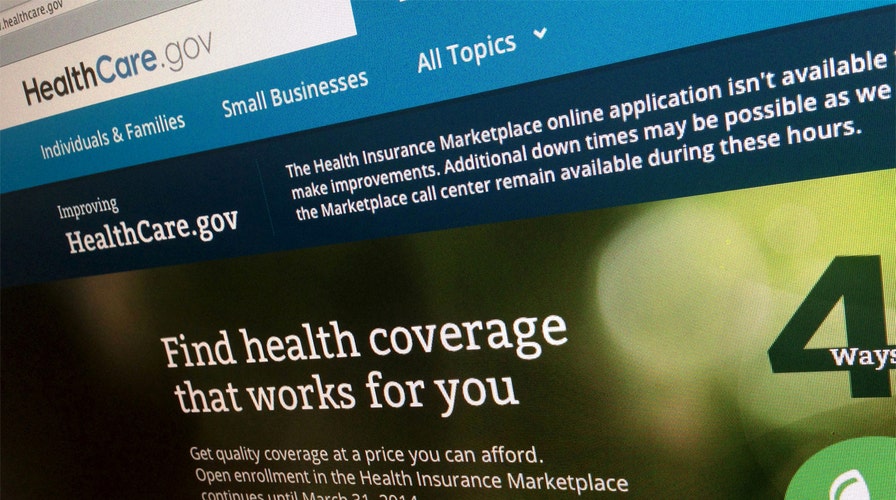Colorado debates single-payer plan to replace ObamaCare
Strategy Room: David Mercer and Brad Blakeman on health care advocates pushing new system
Colorado voters could be asked to weigh in on a far-reaching, first-in-the-nation plan to scrap ObamaCare and replace it with a single-payer-style health care system.
A single-payer system is one where a single agency administers health care fees and costs, while medical care itself is handled by the private sector. Vermont leaders backed off a similar plan a year ago, but activists in Colorado are pushing their own version in the form of a November 2016 ballot question.
Supporters appear poised to get that question on the ballot. According to The Denver Post, supporters turned in more than 156,000 signatures for the measure, well over the 98,492 needed. As a last step, the signatures will still need to be verified.
The new proposal is called ColoradoCare, and its built-in tax coupled with yet another round of sweeping changes to the health care system make it a lightning rod. Funding for the $25 billion program -- about the size of the state's budget -- would come from a 10 percent payroll tax on residents and employers.
But advocates say it beats the alternative.
"Colorado's current system is administratively complex and confusing," state Democratic Sen. Irene Aguilar told FoxNews.com, arguing the benefits of ColoradoCare outweigh the concerns.
Initiative 20, if approved, would establish a constitutional right to health care in Colorado. The state would then seek a waiver from the Affordable Care Act beginning in 2017 that would allow the state to institute its own health insurance program and provide coverage to all Coloradans.
People who are on Medicare or covered through the VA would be given the option to stick with their current plan.
Beyond that, ColoradoCare would offer a "comprehensive, high-quality" universal healthcare through a 21-member board of elected members, advocates say. Under the plan, the system would be controlled by this Board of Trustees, not by a state government agency.
Proponents like Aguilar say this would open up health care to the thousands of underinsured residents in the state.
Critics claim it's an untested and pricey gamble Colorado cannot afford to make.
"ColoradoCare would dismantle Colorado's health insurance industry, result in reduced services ... a loss of doctors and other professionals, and a massive, economically harmful tax increase with future tax increases likely," Kelly Sloan, a Colorado-based consultant and policy fellow at Centennial Institute, told FoxNews.com.
In short, Sloan said it would be "economically devastating" to the state.
Critics also point to Vermont, which had been on track to be the nation's first single-payer state, but abruptly tabled plans late last year after Gov. Peter Shumlin announced the numbers didn't add up. Shumlin pointed to a financial report in 2014 that predicted the cost of the program would nearly double the size of the state's budget in just the first year and would likely require substantial tax hikes for both businesses and residents thereafter.
But Aguilar contends that wouldn't happen in her state.
"Many Coloradans are needing to purchase health plans with high out-of-pocket expenses like co-payments, co-insurance and deductibles," she said. "These additional costs make it difficult for them to obtain medical care or follow through with provider recommendations."
According to the Colorado Health Institute, the state's underinsured rate has risen to 16.4 percent.
Aguilar argues that if Initiative 20 passes, it will help clean up the administrative mess associated with ObamaCare.
"By simplifying our health care system, Colorado can cover everyone," she said. She added, "Businesses can focus on business, not health care. They would simply contribute to payroll premiums. This health care will also cover medical injury related to work."
Aguilar, who sponsored similar legislation in 2013 but was defeated, said she's optimistic about the ballot measure vote. "By simplifying our system we can control costs and increase coverage," she said.
But Sloan said ColoradoCare would only exacerbate the state's problems.
"We need to remember that this is a $26 billion tax increase, which is larger than the entire state budget last year," he said. "Colorado would go from one of the least taxed, to one of the highest taxed states in the nation. We would become highly unattractive to business. And they are being optimistic in thinking that it will only cost $26 billion."





